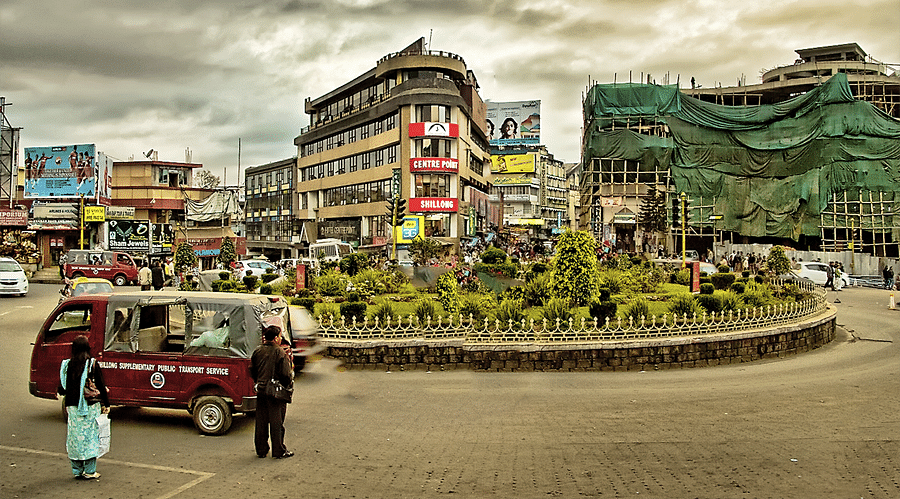New Delhi: A trip to Meghalaya will soon require a little more preparation than just making a travel plan and booking tickets and hotel accommodation. According to a new rule, visitors will now have to register with the Meghalaya government prior to setting foot in the scenic hill state.
Much like the inner line permit (ILP), which is operational in Arunachal Pradesh, Nagaland and Mizoram, visitors to Meghalaya will have to inform the government if they wish to stay beyond 24 hours in the state.
To enforce the change, the National People’s Party-led Meghalaya Democratic Alliance government Friday brought in an ordinance to amend the Meghalaya Residents, Safety and Security Act, 2016 (MRSSA). The cabinet insisted it was “in the interest of the government and people of Meghalaya”.
Many non-tribals in this predominantly tribal state, however, believe the new law is just another way of discouraging them from being here. The awareness of being a non-Khasi, in a state that has seen attacks on Bengalis, Nepalis and Biharis, is still acutely felt by its non-tribal permanent residents.
While the first phase of the anti-foreigner agitation was still on in neighbouring Assam in 1979, tribals in Meghalaya, led by the powerful Khasi Students’ Union (KSU), had attacked domicile Bengalis, resenting their dominance in jobs and businesses. Nearly 20,000 Bengalis were displaced from the state in 1979. In 1987 again, they targeted both Nepalis and Biharis in the state.
Also read: Like with Rohingyas, Facebook aiding hate speech against Bengali Muslims in Assam: Report
Rule doesn’t apply to permanent residents
The MRSSA, which has now been amended, had been introduced by the previous Congress-led government.
The new rule, however, does not apply to Meghalaya’s permanent residents staying outside the state, and visiting central and state government employees.
Coming only two months after the final National Register of Citizens (NRC) in Assam, the ordinance is also seen as a long-standing objective of tribals to check influx of illegal immigrants into Meghalaya.
Talking to ThePrint, state Home Minister James Sangma said, “There has been unease among the public regarding the illegal influx and a demand was raised for a system such as the ILP. We wanted to ensure these concerns were addressed and hence have amended the earlier Act.”
The Conrad Sangma-led government has, however, been critical of the Citizenship (Amendment) Bill, 2016, which seeks to grant citizenship to non-Muslim immigrants from Bangladesh, Pakistan and Afghanistan.
Demands for an ILP have been raised for several decades now by the KSU and a number of other tribal bodies.
“Even though the MRSSA Act came into force in 2016, it wasn’t implemented in its true spirit till recently,” Donald V. Thabah, general secretary of the KSU central executive council, told ThePrint. “We have been demanding an ILP in Meghalaya for a long time. We are not against any amendment to the MRSSA Act but if any changes are made to protect the rights of tribals, these should be enforced immediately.”
Ruben, another KSU member, said, “The ordinance is to tackle influx into the state. There would be no restrictions on Indian citizens. This is just to keep a record of people entering Meghalaya.”
Patricia Mukhim, editor of Shillong Times, told ThePrint that the government was under pressure from local groups. “The ordinance came about since everybody is in a panic,” she said. “The government is under pressure too from various local bodies to curb illegal influx in Meghalaya.”
Also read: Modi govt’s Citizenship Amendment Bill silent on rights of Gorkhas, Koch Rajbongshis & Bodos
‘Outsider-native clash’
The fight for land, identity and space in this tiny state has been ongoing. Only last year, a minor tiff between a Sikh woman and a Khasi bus driver had escalated into violence. A curfew had to be imposed in Shillong for several hours to prevent further trouble.
Poet and novelist Anjum Hasan from Shillong puts in succinctly in her poem Small Town on what it means to be a dhkar (outsider) in Meghalaya: “When a man is killed in the afternoon/knifed and left to die with his face down in a drain.”
“The anxiety of being a dhkar is still felt strongly. There is no problem with the ordinance but with the bodies under whose insistence it has been brought in — such as the KSU and the Khasi Hills Autonomous District Council (KHADC),” said a non-tribal Bengali journalist, who was born and brought up in Shillong. “It is being used by them to prevent the entry of outsiders. KSU, for example, has a say in almost everything. There has always been fear among non-tribals in the state.”
An IT professional, born and educated in the Meghalaya capital, said, “Angst against non-tribals has never lessened, especially against the Bengalis. Those who could afford to leave the state did so at the earliest.
“It’s not a good memory to revisit your childhood in Shillong when you are a non-tribal. With the ordinance, the government now is only trying to force the non-tribals out in a more organised fashion.”
The KHADC had, last week, evicted non-tribal hawkers from several areas of the state. It carried out the move after issuing a public notice on 4 October stating that the United-Khasi Jaintia Hills (Trading by Non-Tribals) Regulation, 1954, prohibits non-tribals from carrying out any trade or business without a valid license issued by the KHADC.
In yet another recent incident recently, a KSU district president had assaulted two police officers, including an Assamese personnel, inside the Umiam Police Station under Ri Bhoi District of Meghalaya.
Also read: Bengali Hindu women not on NRC pin hopes on BJP promise of another list, citizenship bill
